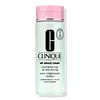What's inside
What's inside
 Key Ingredients
Key Ingredients

No key ingredients
 Benefits
Benefits

 Concerns
Concerns

 Ingredients Side-by-side
Ingredients Side-by-side

Aloe Barbadensis Leaf Juice
Skin ConditioningCarthamus Tinctorius Seed Oil
MaskingCetyl Alcohol
EmollientGlyceryl Stearate
EmollientDiatomaceous Earth
AbrasiveGlycerin
HumectantGlycolic Acid
BufferingSodium Glycolate
BufferingSodium Trideceth Sulfate
CleansingSqualane
EmollientAnthemis Nobilis Flower Extract
MaskingSaponaria Officinalis Leaf/Root Extract
Skin ConditioningHexylene Glycol
EmulsifyingFructose
HumectantGlucose
HumectantSucrose
HumectantUrea
BufferingDextrin
AbsorbentAlanine
MaskingGlutamic Acid
HumectantAspartic Acid
MaskingHexyl Nicotinate
EmollientPersea Gratissima Oil
Skin ConditioningTriticum Vulgare Germ Oil
EmollientCorylus Avellana Seed Oil
EmollientSesamum Indicum Seed Oil
EmollientPhenoxyethanol
PreservativeCaprylyl Glycol
EmollientEthylhexylglycerin
Skin ConditioningXanthan Gum
EmulsifyingParfum
MaskingChlorphenesin
AntimicrobialCyamopsis Tetragonoloba Gum
Emulsion StabilisingSodium Hyaluronate
HumectantCitric Acid
BufferingAloe Barbadensis Leaf Juice, Carthamus Tinctorius Seed Oil, Cetyl Alcohol, Glyceryl Stearate, Diatomaceous Earth, Glycerin, Glycolic Acid, Sodium Glycolate, Sodium Trideceth Sulfate, Squalane, Anthemis Nobilis Flower Extract, Saponaria Officinalis Leaf/Root Extract, Hexylene Glycol, Fructose, Glucose, Sucrose, Urea, Dextrin, Alanine, Glutamic Acid, Aspartic Acid, Hexyl Nicotinate, Persea Gratissima Oil, Triticum Vulgare Germ Oil, Corylus Avellana Seed Oil, Sesamum Indicum Seed Oil, Phenoxyethanol, Caprylyl Glycol, Ethylhexylglycerin, Xanthan Gum, Parfum, Chlorphenesin, Cyamopsis Tetragonoloba Gum, Sodium Hyaluronate, Citric Acid
Water
Skin ConditioningLauramidopropyl Betaine
CleansingCocamidopropyl Hydroxysultaine
CleansingSodium Chloride
MaskingSodium Laureth Sulfate
CleansingSodium Cocoyl Sarcosinate
CleansingTea-Cocoyl Glutamate
CleansingButylene Glycol
HumectantAloe Barbadensis Leaf Juice
Skin ConditioningPEG-120 Methyl Glucose Dioleate
EmulsifyingSucrose
HumectantSodium Coco Pg-Dimonium Chloride Phosphate
CleansingCitric Acid
BufferingHexylene Glycol
EmulsifyingPolyquaternium-7
Caprylyl Glycol
EmollientDisodium EDTA
Methylchloroisothiazolinone
PreservativeMethylisothiazolinone
PreservativePhenoxyethanol
PreservativeWater, Lauramidopropyl Betaine, Cocamidopropyl Hydroxysultaine, Sodium Chloride, Sodium Laureth Sulfate, Sodium Cocoyl Sarcosinate, Tea-Cocoyl Glutamate, Butylene Glycol, Aloe Barbadensis Leaf Juice, PEG-120 Methyl Glucose Dioleate, Sucrose, Sodium Coco Pg-Dimonium Chloride Phosphate, Citric Acid, Hexylene Glycol, Polyquaternium-7, Caprylyl Glycol, Disodium EDTA, Methylchloroisothiazolinone, Methylisothiazolinone, Phenoxyethanol
 Reviews
Reviews

Ingredients Explained
These ingredients are found in both products.
Ingredients higher up in an ingredient list are typically present in a larger amount.
Aloe Barbadensis Leaf Juice comes from leaves of the aloe plant. Aloe Barbadensis Leaf Juice is best known for helping to soothe sunburns. It is also anti-inflammatory, moisturizing, antiseptic, and can help heal wounds.
Aloe is packed with good stuff including Vitamins A, C, and E. These vitamins are antioxidants, which help fight free-radicals and the damage they may cause. Free-radicals are molecules that may damage your skin cells, such as pollution.
Aloe Barbadensis Leaf Juice also contains sugars. These sugars come in the form of monosaccharides and polysaccharides, folic acid, and choline. These sugars are able to help bind moisture to skin.
It also contains minerals such as calcium, 12 anthraquinones, fatty acids, amino acids, and Vitamin B12.
Learn more about Aloe Barbadensis Leaf JuiceCaprylyl Glycol is a humectant and emollient, meaning it attracts and preserves moisture.
It is a common ingredient in many products, especially those designed to hydrate skin. The primary benefits are retaining moisture, skin softening, and promoting a healthy skin barrier.
Though Caprylyl Glycol is an alcohol derived from fatty acids, it is not the kind that can dry out skin.
This ingredient is also used as a preservative to extend the life of products. It has slight antimicrobial properties.
Learn more about Caprylyl GlycolCitric Acid is an alpha hydroxy acid (AHA) naturally found in citrus fruits like oranges, lemons, and limes.
Like other AHAs, citric acid can exfoliate skin by breaking down the bonds that hold dead skin cells together. This helps reveal smoother and brighter skin underneath.
However, this exfoliating effect only happens at high concentrations (20%) which can be hard to find in cosmetic products.
Due to this, citric acid is usually included in small amounts as a pH adjuster. This helps keep products slightly more acidic and compatible with skin's natural pH.
In skincare formulas, citric acid can:
While it can provide some skin benefits, research shows lactic acid and glycolic acid are generally more effective and less irritating exfoliants.
Most citric acid used in skincare today is made by fermenting sugars (usually from molasses). This synthetic version is identical to the natural citrus form but easier to stabilize and use in formulations.
Read more about some other popular AHA's here:
Learn more about Citric AcidHexylene Glycol is a surfactant. Glycols are a class of alcohols. Hexylene Glycol is a surfactant and emulsifier.
As a surfactant, Hexylene Glycol helps gather dirt and oil on your skin to be washed away.
As an emulsifier, Hexylene Glycol helps keep water and oil together. This prevents them from separating in a product. Hexylene Glycol also thins out the texture of a product by lessening viscosity.
Hexylene Glycol has a small molecular weight.
Learn more about Hexylene GlycolPhenoxyethanol is a preservative that has germicide, antimicrobial, and aromatic properties. Studies show that phenoxyethanol can prevent microbial growth. By itself, it has a scent that is similar to that of a rose.
It's often used in formulations along with Caprylyl Glycol to preserve the shelf life of products.
Sucrose is a natural sugar found in fruits, vegetables, and nuts. It is the main constituent of white sugar.
In skincare, sucrose is a humectant and can be a mild exfoliant.
Sucrose is hydrophilic, meaning it attracts water. This makes it an effective humectant and helps hydrate the skin.
Studies show sugars may worsen acne-prone skin due to it disrupting the skin's natural biome. We recommend speaking with a professional if you have any concerns.
In some products such as body scrubs, sucrose is used as an gentle exfoliant.
The term 'sucrose' comes from the french word for sugar, 'sucre'.
Learn more about Sucrose